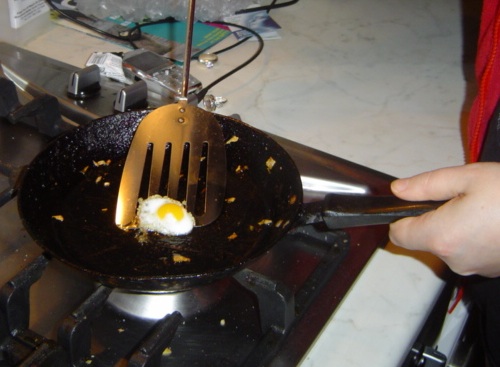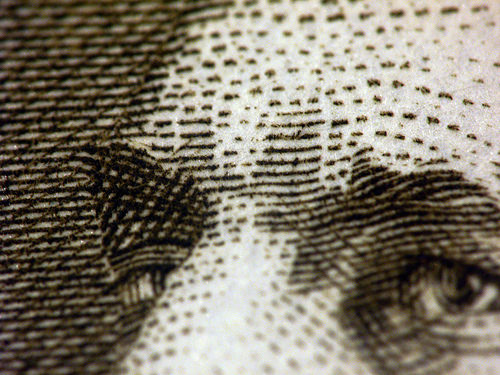
(photo credit: Eggybird)
Every month for the past eight months, dutiful Americans have been pulling out their wallets and handing their money to other Americans in exchange for goods and services. In other words, they’ve been lubricating the wheels of our creaky economic machine.
Why? Well, part of it is that they’re more confident now that the recession is over and there are real signs of a recovery. But the other, more significant part is that the cost of living increased. That’s right: inflation.
Food and gas prices went up, which means that more of Joe American’s dollars went to feeding his family and driving to work than to buying a new television or a trampoline for the kids.
Ben Bernanke from the Fed says that nobody should be worrying about out-of-control inflation – food and gas prices will come down again. But if he’s wrong, it’s the Fed’s job to take action to make sure Joe still has a few dollars left to pay for his morning coffee after feeding the kids and driving to work.
And by the way… while inflation sounds like a bad thing, it’s really not as bad as its evil twin, deflation.
Have you been spending more money since last summer? Why?



